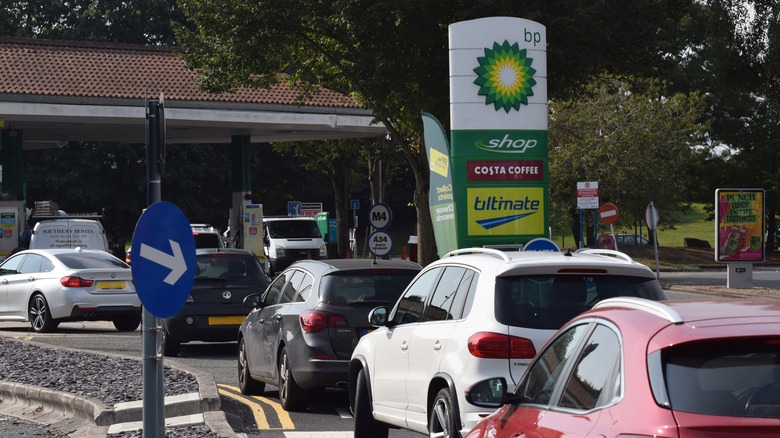US Fuel Economy Standards Just Changed Again
U.S. Transportation Secretary Pete Buttigieg and NHTSA Deputy Administrator Dr. Steven Cliff have jointly announced new Corporate Average Fuel Economy (CAFE) standards for vehicles with model years 2024, 2025, and 2026. The duo hailed the standards as a win for consumers whom they claim will pay substantially less at the pump as new vehicles are produced with better fuel efficiency than ever before. The CAFE standards regulate how far a car or light truck must be able to travel on a gallon of fuel. In model year 2026, cars and light trucks sold in the U.S. will need to be able to travel 49 mpg on average under the changes — this is up from the current requirement of 28 mpg.
The timing of the announcement comes at a time when gas prices in the U.S. are at record highs thanks in large part to sanctions imposed on Russia following its invasion of Ukraine. Unfortunately, the CAFE changes won't likely have any impact in the short term on gas prices, but when they do kick in, there will be big fuel savings to be had. Both model year 2024 and 2025 cars and light trucks will need to increase fuel efficiency by 8% annually, while fuel efficiency for model year 2026 will be required to jump by 10%. Crafters of this latest set of standards suggest that they will improve U.S. energy independence by reducing fuel use by over 200 billion gallons by 2050.
Better fuel efficiency means higher vehicle prices
The NHTSA projected that if car manufacturers passed required cost increases for these fuel efficiency changes on to consumers, per-vehicle costs paid by U.S. consumers for new vehicles would increase by roughly $1,100 through model year 2029. At the same time, the NHTSA estimates that "fuel savings for those vehicles would increase significantly, by roughly $1,700, undiscounted, on average."
An ABC News report cited environmental groups that suggested the NHTSA's regulation proposals don't go far enough to combat climate change. Canada is so concerned about the impact of climate change on the country that it has just announced moves to mandate an all-electric fleet by 2035. While the Biden Administration has proclaimed a net-zero emissions target of 2050, it has yet to have to call time on sales of internal combustion engine (ICE) vehicles. Biden's proclamation didn't go so far as to demand all car sales in the country go all-electric any time soon but did call for a transition of the federal vehicle fleet to all zero-emission vehicles by 2035.

